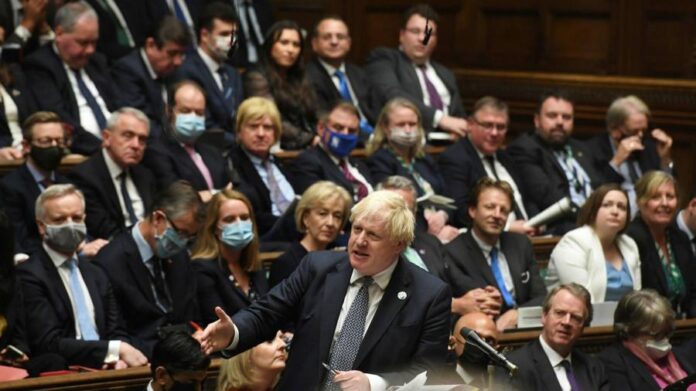“There’s no way I could be an MP without my outside interests,” the newish backbencher explained. “My wife works full time, I’ve got kids and need the money for childcare.” To the average British voter, a salary of £82,000-a-year plus expenses might seem generous. But to listen to this MP — and many of his colleagues — the struggle is real.
Westminster is embroiled, yet again, in a scandal over MPs’ pay. And, again, it is a lobbying scandal that has raised questions over whether second jobs should be banned once and for all. The culprit is Owen Paterson, the Tory grandee who made “egregious” breaches of parliamentary standards and stood down last week after a botched effort by Boris Johnson’s government to overturn his punishment.
Paterson’s outside interests included two consulting jobs that netted him £100,000 on top of his MP salary. He was found guilty of paid advocacy, seemingly using his position to advance the interests of his paymasters. Even his most ardent defenders do not dispute he sought meetings with ministers and government agencies on issues relevant to his outside work, only that the inquiry process was flawed.
In one sense, the checks and balances worked. Johnson’s efforts to scrap the whole standards system to save Paterson failed and the court of public and parliamentary opinion did for him. But the more voters hear of MPs’ side gigs, the greater the clamour for reform. Consider the fury over Sir Geoffrey Cox, who earned nearly £1m last year from legal work, mostly undertaken from the British Virgin Islands. He has spoken in just one parliamentary debate since being sacked as attorney-general in 2020.
Labour has pledged to clamp down on outside jobs in certain professions so, the party announced, “MPs can’t profit from their office and open the door to vested interests”, without saying how this would be defined. On the government side, trade secretary Anne-Marie Trevelyan has backed plans to outlaw paid lobbying by MPs. Yet she supports the old notion that second jobs “bring a richness to our role”.
Isabel Hardman, author of Why We Get the Wrong Politicians, argues that the “richness” argument does not hold because two classes of MPs exist: “Those in comfortable safe seats who have spare time for second jobs, versus those who represent marginals, spend their lives on the stump and incur much greater costs”. Many of these second jobs, she says, “are well-paid directorships helping companies navigate parliament”.
The debate raises a deeper question about what it is to be an MP. Is it still a part-time public service role, to represent voters on top of a day job? Or is it a full-time occupation: legislator, social worker and community champion? If it’s the latter, it may be time to accept that the UK now has a professional political class, curtail most outside interests and duly up MP salaries, which lag behind comparable professions such as solicitors.
No outcome will sit well with voters, Hardman predicts. “MPs need to take a decision knowing the public will be cheesed off with them either way . . . Do they stop all second jobs and put the pay up so it is commensurate with a headteacher of a big secondary school? Or do they allow second jobs to continue and keep the pay as it is?”
MPs could opt for immediate but less radical reform such as a time limit of, say, no more than 20 per cent of the working week allowed on non-parliamentary work. Hannah White of the Institute for Government think-tank believes outside work can still be acceptable if “rules define what is reasonable”. Regaining public trust, she adds, will mean “banning consultancy and lobbying where you’re an adviser to a firm, on a retainer and arranging meetings”.
Historian Peter Hennessy once wrote that the UK was run on the “good chaps theory of government”, where codified rules are unnecessary because of the moral fortitude of its participants. The Paterson saga, and others, suggest the “chaps” can no longer be trusted. Lobbying scandals have been like small fires in the woods, creating some immediate carnage before being rapidly stamped out. Eventually one may blaze bigger, as expenses did a decade ago. Now, as then, voters feel that probity in public life matters.
sebastian.payne@ft.com
Credit: Source link










